These Americans want you to know Juneteenth is a national holiday for everyone, not just Black people
- Oops!Something went wrong.Please try again later.
WASHINGTON – Charles Hicks, known as “Mr. Black History,” remembers hosting Juneteenth events in the 1980s at the main public library in the heart of downtown.
The event showcased poetry, music, panel discussions and activities helping Black residents trace their family history. It started with about 15 people, but over the years grew to as many as 300 packed in the library's lobby.
“Black pride made a major difference,” Hicks recalled of the growing interest. “What we started as a seed grew into a garden. Now, there are many gardens.”
Though Juneteenth celebrations happen across the country, Hicks, community groups and other residents in the nation’s capital have long commemorated what became a federal holiday last year. This summer, the city will be the site of more events, including a three-day festival organized by musician Pharrell Williams. Officials hope others will follow their lead and embrace Juneteenth as an American holiday with equal importance to, say, July 4th or Memorial Day.
Many district leaders said they welcome the renewed national interest in Juneteenth, sparked in part by more efforts to celebrate Black culture and history in the wake of George Floyd’s murder in 2020 and other social justice protests.
“It is long overdue, but I'm happy that it's here,” Hicks said. “It is a national holiday for all Americans, not just Black people.”
Elevating Juneteenth to a federal holiday gives supporters and historians more platforms to share its significance, said Frank Smith, director of the African American Civil War Museum in Washington which has hosted Juneteenth events for a decade.
“Finally making it a national holiday is going to give us an opportunity to add something new to the narrative of Black participation in America,” he said.
More: Juneteenth is a celebration of freedom from slavery. But it didn't mean freedom for all.
More: Pharrell, Ellen DeGeneres, Van Jones, more call for Juneteenth to become paid holiday
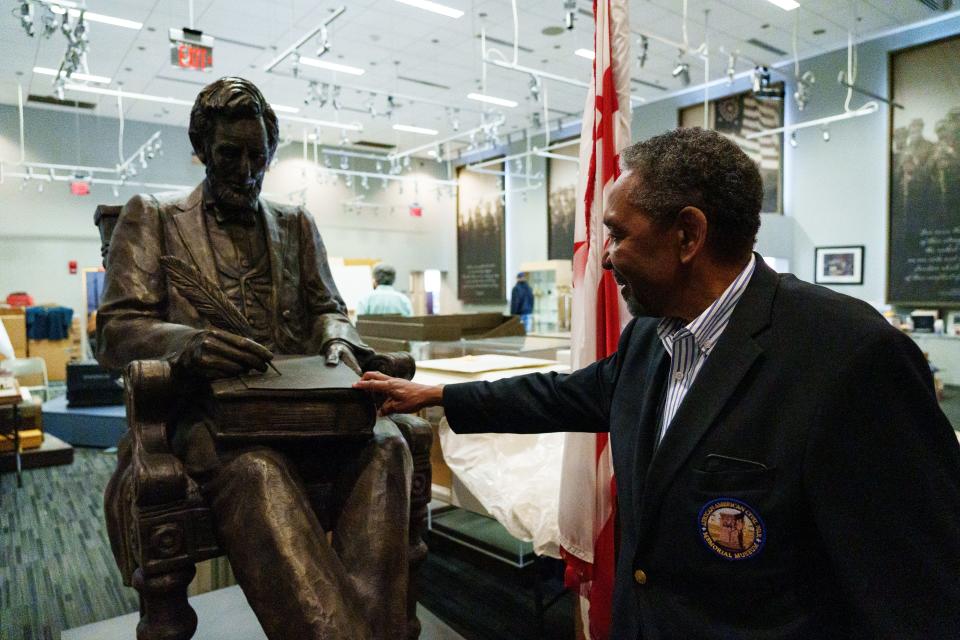
Juneteenth long celebrated in DC
Juneteenth has been called Jubilee Day and Freedom Day and has been celebrated on different days in different places because some didn’t know exactly when slaves were freed.
“They didn’t know right away because the master wouldn’t tell them,” said Hicks, founder and director of the D.C. Black History Celebration Committee.
Juneteenth marks the day on June 19, 1865, when Maj. Gen. Gordon Granger informed people in Galveston, Texas, that President Abraham Lincoln’s Emancipation Proclamation two years earlier had freed enslaved African Americans in Confederate states.
Through the years, it has been celebrated at churches, in backyards, at fish fries and at block parties. There are concerts, marathons and panel discussions.
After World War II, Juneteenth celebrations seemed to die down, except in places such as Galveston, Hicks said.
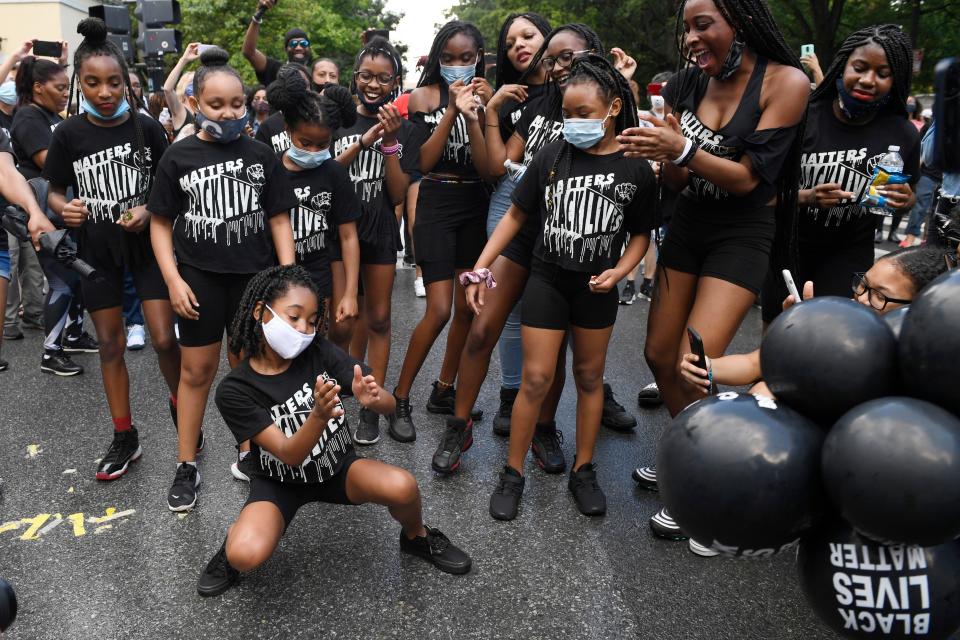
But in the district, there was a resurgence, particularly during the rise of Black leadership in the city. By the early 1990s, Juneteenth celebrations were well underway here in part because of Lewis Hicks, a Texas native, who helped establish programs at a neighborhood museum, said C.R. Gibbs, an author, historian and lecturer.
In the years since, there have been programs throughout the metropolitan area showcasing Black culture, including music, dance and food.
Any authentic celebration, Gibbs said, must have Big Red, a red soda water that originated in Texas. At one event where he spoke, Gibbs remembered the organizer shipped in cans of Big Red from Texas.
At the African American Civil War Museum, where there is a memorial dedicated to Black soldiers who served in the war, it was important to connect that service with Juneteenth's history, Smith said.
Although 200,000 Black soldiers served in the U.S. Army, they weren’t invited to join a victory march down Pennsylvania Avenue in May 1865, said Smith.
“They wouldn’t even let us march in the back,” he said.
Instead, Smith said, some Black soldiers were sent on a flotilla to Texas, including to Galveston, “to put down the last vestiges of Confederates who were running a terrorist campaign.”
“America ought to be reminded that that long period of slavery, 250 years of slavery, ended with the Civil War and it ended with a civil war that had African American soldiers in it,” Smith said.
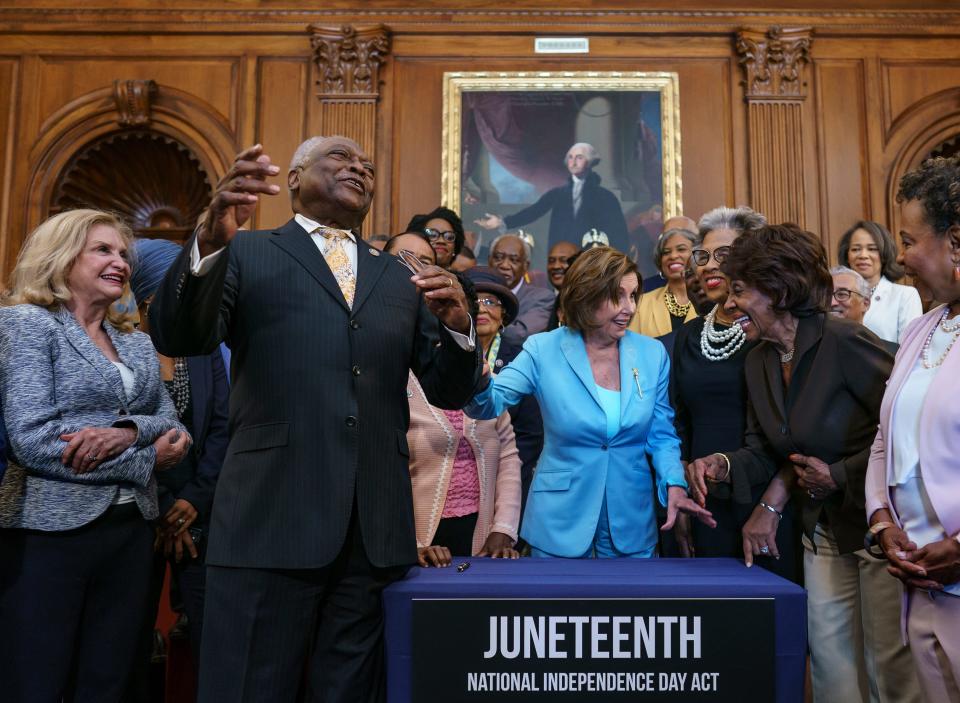
For Joyce Bailey, participating in Juneteenth events is personal. Bailey, who lives in Greenbelt, Maryland, about 12 miles outside Washington, is a descendant of U.S. Sgt. Alexander Kindle, who served in the 54th U.S. Colored Infantry of Arkansas.
As part of FREED, Female RE-Enactors of Distinction, a group presenting Black women during the Civil War era, Bailey dresses in period attire and shares the story of Elizabeth Keckley, a Black dressmaker in the White House of Lincoln.
Bailey said it’s important to tell the story of these women, many of whom were nurses and spies who worked in the homes of Confederate soldiers. FREED goes to schools, churches and museums for Juneteenth events.
“There are so many people just finding out about Juneteenth,” Bailey said. “We go and present our characters. ... Without our being there, many people would not know about the contribution of African American women during that period of time.”
More: Make Juneteenth a national holiday for the American dream of liberty and justice for all
Celebrations an 'act of resistance''
The district not only celebrates Juneteenth but also Emancipation Day, when slavery ended here on April 16, 1862. The day, which became a local holiday in 2005, is marked by a parade featuring marching bands, local dignitaries and other festivities.
Both holidays "are steps on a road to freedom that we still haven’t finished walking yet," Gibbs said.
Much like other moments in Black history, Juneteenth had also become a way to push back against oppression.
“It became, from the very beginning, an act of resistance ... when we look at what Black people had to face in Texas,” Gibbs said. “White Texans were not happy, the same is true by the way in D.C. They were not happy about the aspect of freedom whether it was in Texas or Washington, D.C., for Black people.”
There were sometimes lynchings and shootings when Black people gathered for events, Gibbs said. That wasn’t as much of a problem in Washington, which in the 1950s became a predominately Black city led by mostly African Americans, historians said.
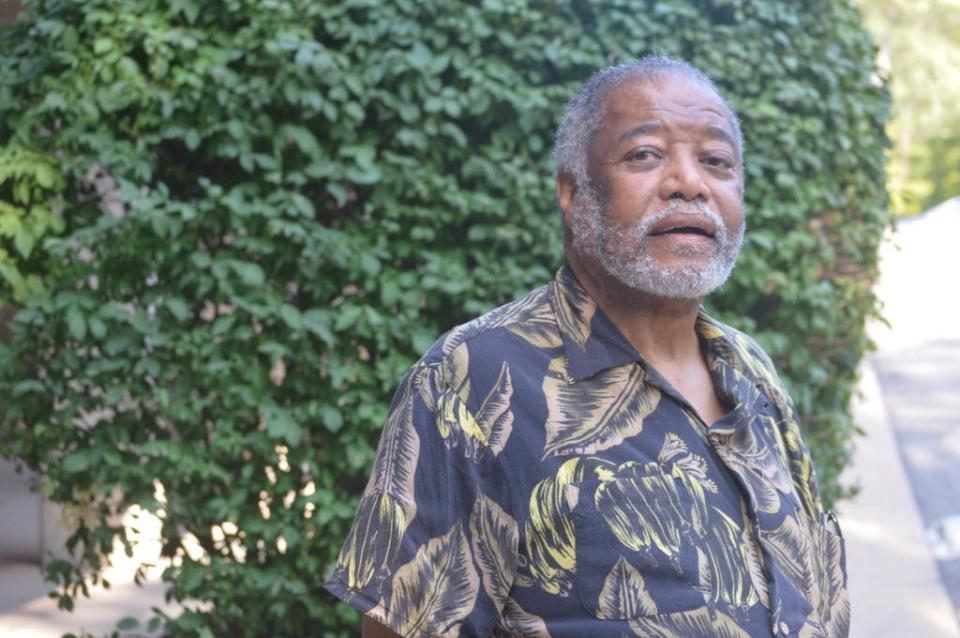
Some in the district call Juneteenth the Black Fourth of July.
“For many of us, Juneteenth is more meaningful,” Hicks said, noting the role of Black soldiers in the Civil War. “We fought for our freedom. Nobody gave it to us. We have a right to celebrate. And, of course, we welcome any and everybody who understands the struggle of Black communities and Black men and Black people to join us in celebrating Juneteenth.”
Since 2014, Juneteenth on Georgia has hosted an annual lecture series and ran a campaign to promote Black businesses along Georgia Avenue, a commercial corridor that runs through the district.
This year's theme is “Juneteenth: History, Heritage, Holiday.” The group plans to launch a “green book,'' which during segregation provided Black travelers with a list of friendly businesses.
“The whole point was to give us a reason to celebrate, but do it in a way that our kids were educated and the family was educated and we brought some commerce and notoriety to the Georgia Avenue corridor,” said Ginia Avery, a co-founder along with Darren Jones and Timothy Jones of the group, which promotes economic and educational growth.
The long history of Juneteenth celebrations in the Washington area has won over new followers.
Tom Blanton, a Texas native, didn’t commemorate Juneteenth even when he moved to the city 40 years ago. He doubted stories that Black people didn’t know they were supposed to be free since some white leaders were not enforcing the emancipation law.
After Floyd’s death and Juneteenth became a federal holiday, Blanton became more involved, attending a rally in nearby Maryland. He set up a table where he displayed his family tree and history books about Black liberation and the civil rights movement.
“It became another opportunity to talk to people about our freedom and liberation,” he said.
Blanton is the liaison between the African American Civil War Museum and the National Juneteenth Observance Foundation and a network of local businesses and community groups observing Juneteenth. He helps connect groups and coordinate plans.
“This is a date when we can talk about what was going on, why it was going on, what was our role in that,” Blanton said.
More: Juneteenth, symbolic end of America's original sin of slavery, complements Independence Day
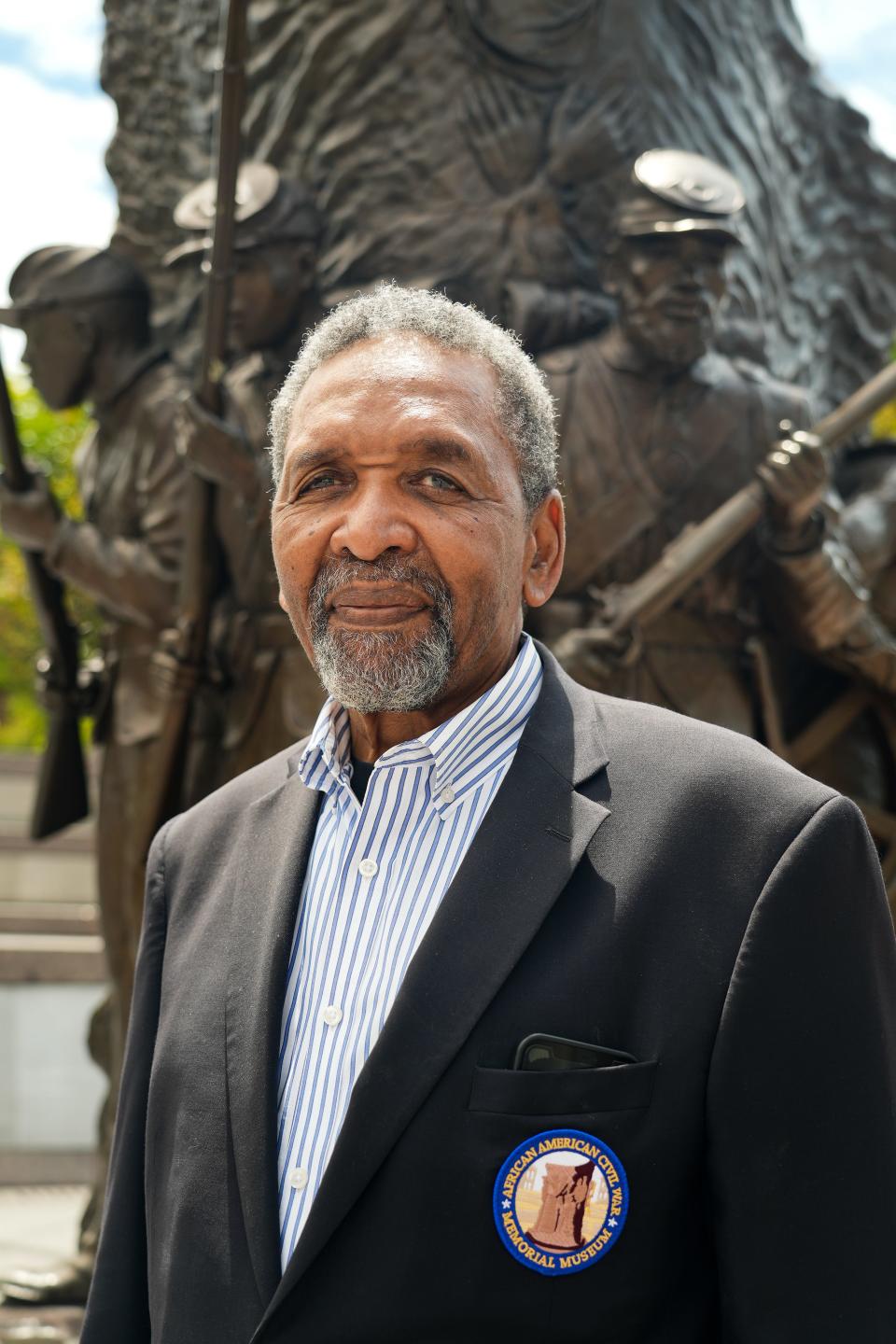
Much to learn through Juneteenth
To mark this Juneteenth, groups across the region are preparing for events, including Pharrell's “Something in the Water’’ festival. The artist moved the festival from Virginia Beach to Washington this year.
“Why not take Virginia with me to D.C. so we can take our message of unity, diversity and equity to our nation’s capital?” Pharrell told USA TODAY.
That same weekend, the African American Civil War Museum will host a ceremony to honor Black soldiers who went to Texas and invite some of their descendants.
This year, the Black Fathers Matter motorcade organized by Hicks falls on the same day as Juneteenth.
Last month, the D.C. Council held a hearing on a bill that would set up a commission to plan Juneteenth annual activities and educational events throughout the year locally and nationally.
D.C. Councilman Charles Allen, who worked with Hicks to craft the bipartisan legislation, said a mission is to educate people about Juneteenth, including possibly through a lecture series.
“I think if you go talk to a large amount of white America, they don't know what Juneteenth is. I say that as a white person,” Allen said. “I think that you'd see the same thing in D.C., that there's a good amount that don’t understand what Juneteenth is or why it matters. And so if we really want Juneteenth to be something that everyone understands why it should be celebrated and help understand and educate what it means and what it represents, then you’ve got to act with more intentionality.”
If done right, Allen said, the program could be a model for others across the country.
‘’We'd like to think that at some point when people will think of Juneteenth and celebrating, they think of Washington, D.C.,” Hicks said. “We’re the nation’s capital. We like to do things big.”
Contributing: Melissa Ruggieri, Mabinty Quarshie
More: USA TODAY staff reads excerpt of the Emancipation Proclamation for Juneteenth
This article originally appeared on USA TODAY: Why Juneteenth is a federal holiday for all, not just Black folks

